Post
A catch
Save a catch to start your fishing logbook. You will be able to to share it with the community if yo want!
A fishing trip
Post an ad to go fishing with other fishermen
Save a catch to start your fishing logbook. You will be able to to share it with the community if yo want!
Post an ad to go fishing with other fishermen
Share a thought, a question with the community
My favorite cities
×Join our 2 fishermen in Clay in Webster. The fishing forecast is currently 2.4. The most caught fishes here are the black crappie, the lake trout, the largemouth bass and the comanche springs pupfish. Come try the most famous fishing techniques like the bass trolling, deep-sea fishing, fishing with traps or barracuda trolling.
Our fishing forecast of Clay indicates the best time to go fishing in this city.
The Black Crappie
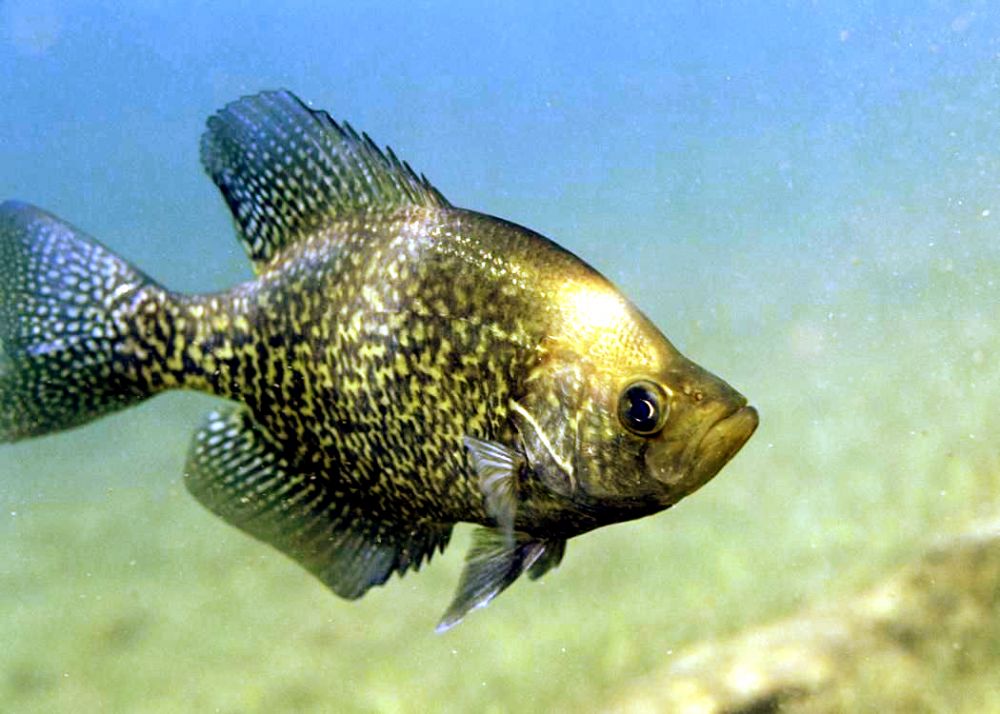
The black Crappie belongs to the Centrarchidae family. Its average length is 18 to 25 cm, up to 38 cm with a weight generally varying between 300 and 900 grams. The largest specimens can reach 1kg. The all-time record comes from Missouri with a 2.26kg black crappie, while Ontario's is 1.7kg. It breeds around the end of March. Its longevity is 7 years. It is fished in April and May. The body of this fish has the typical shape of craps and other members of the centrarchidae family, i.e. oval and flattened with thorny fins. The height of this fish represents about 33% of its length. Its color is mainly dark olive, covered with a mosaic of irregular black spots on its head, back and sometimes on its belly. The flanks are paler, but also spotty, often with silver, green or even blue highlights. The color can vary considerably depending on the environment in which the fish live. Its mouth is large, reaching to a point below the middle of the eye. The black Crappie is particularly recognizable by its large fins, which give the impression that it has sails. It has 7 to 8 spines on the dorsal fin and 6 to 7 spines on the anal fin. This is one of the main distinctions that can be made with some craps that have 10 to 12 spines on the dorsal fin. The differences between the white and black crappie are sometimes subtle. The dark spots on the black crappie are a random texture, they appear as stripes on the white crappie. The latter also has a less dark back, a longer body and, above all
The Black Crappie is a famous fish you can catch in Clay.The Lake trout
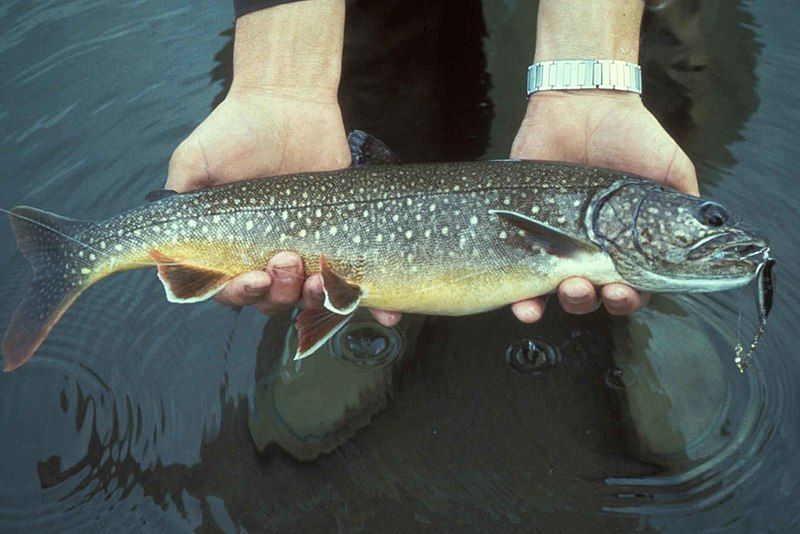
The Lake trout belongs to the Salmonidae family. The average size is 68 cm for 3 kg. It has a lifespan of 12 years. It spawns in fall. It can be fished all year round. Lake trout have a deeply forked caudal fin and a slate-grey to greenish grey body with a lighter underside. Cream to yellow spots are usually present on the head, body, dorsal and caudal fins. Lower fins are orange-red with a narrow white edge. Younger fish will have between seven and twelve marks of broken parr along their sides. The species supports nine to twelve gills and, unlike its cousin the brook trout (Salvelinus fontinalis), lake trout do not have a black band on the front edge of their anal and pelvic fins. Breeding males develop a dark lateral band on their sides.
The Lake trout is a famous fish you can catch in Clay.The Largemouth Bass
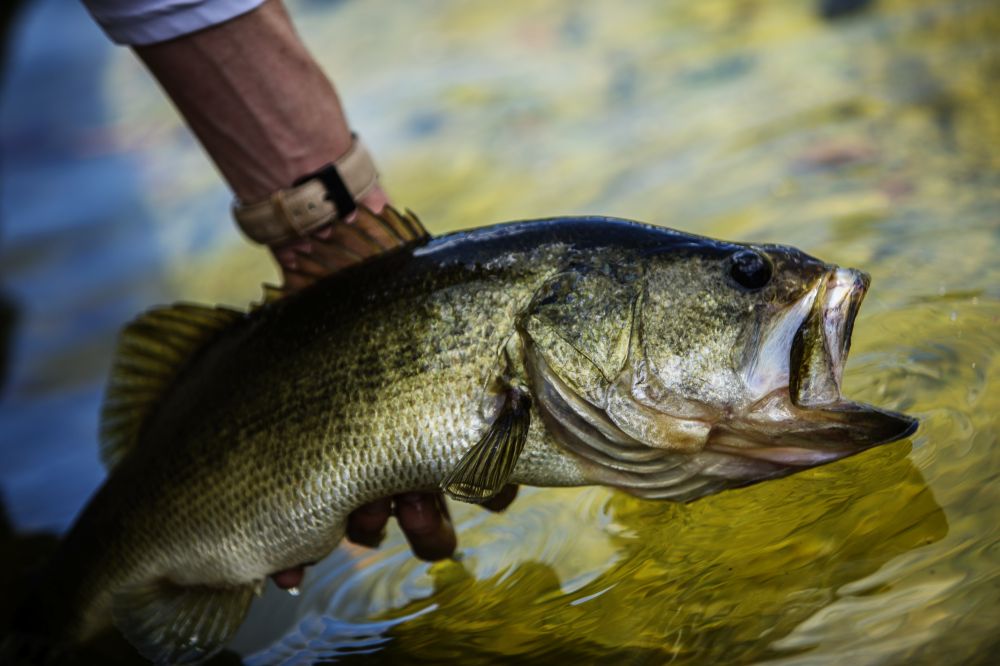
The Largemouth Bass belongs to the Centrarchidae family. It has an average size of 45 cm but may reach 60 cm. The maximum recorded weight was 10,09 kg. It has a lifespan of 6 years. It breeds between February and July. It can be fished all year round. Largemouth bass has a large mouth with a slightly oblique mouth. Its body is thin to robust, slightly flattened laterally and of oval cross-section. The corner of the mouth extends beyond the eye. The back and head are dark green to light green in color with lighter sides and a whitish belly and underside. A large lateral band can be seen from the snout through the eyes to the base of the tail. Towards the tail, there is a series of spots of different sizes. These spots become a solid and uniform band on the caudal peduncle. The eye is golden brown. Vertical fins slightly pigmented, generally clear paired fins; caudal fin in young and adult. Adults in muddy lakes are dark olive brown to black, with marks that are difficult to distinguish. Males in breeding condition tend to be darker in color.
The Largemouth Bass is a famous fish you can catch in Clay.The Comanche springs pupfish
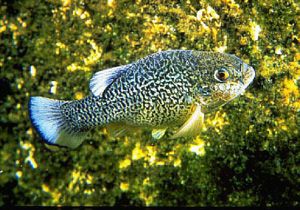
The Comanche springs pupfish belongs to the Cyprinodontidae family. The common length for Comanche Springs aphid is 3.8 cm, the maximum reported length for this species is 6.2 cm. They can live up to two years. It reproduces in the spring. This species is endangered, so fishing is prohibited. The Comanche springs pupfish is a small fish with a compressed body. Males are larger than females and have a metallic blue color while females are beige.
The Comanche springs pupfish is a famous fish you can catch in Clay.The Moapa Dace
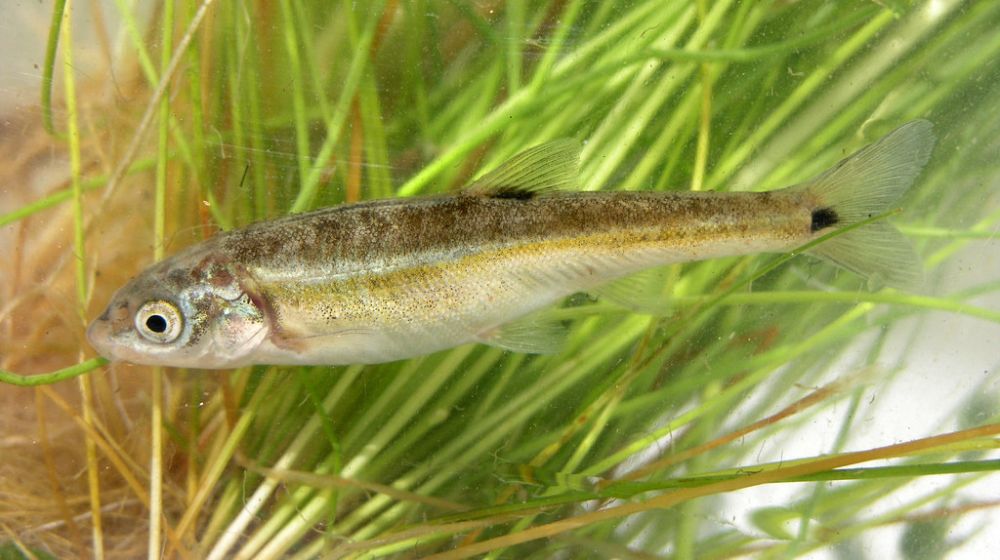
The Moapa Dace belongs to the Cyprinidae family. It has an average size of 10 to 13 cm. It has a lifespan of 4 years old. It may spawn throughout the year with a maximum activity in spring. It is an endangered species so the fishing is prohibited. It is a small fish with a short head, a terminal mouth and thick, semiconducting lips. The dorsal fin begins above or slightly behind the insertion of the pelvic fins and the caudal fin is forked. The dorsal color is dark, the sides are brownish with slightly golden areas and the ventral color is light. There is a dark spot on the tail and a dark line on each side of the body. The scales are small and deeply inlaid and the skin looks like leather. Some dace species have a small maxillary barbell, but not the species.
The Moapa Dace is a famous fish you can catch in Clay.Our fishing forecast of Clay indicates the best time to go fishing in this city.
Our fishing forecast of Clay indicates the best time to go fishing in this city.
Our fishing forecast of Clay indicates the best time to go fishing in this city.
